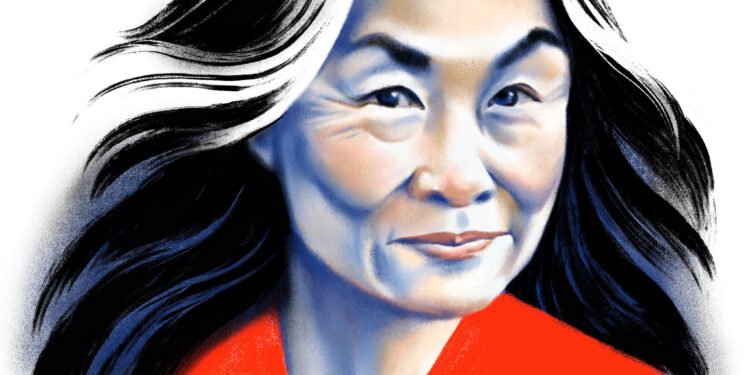No Name Woman Essay Summary By Maxine Hong Kingston’s
Maxine Hong Kingston’s memoir “The Woman Warrior” was released in 1976. “No Name Woman,” one of the book’s most notable chapters, tells the tale of Kingston’s aunt, who was shunned and removed from the family history because of what was thought to be an act of adultery in her Chinese town.
No Name Woman Essay By Maxine Hong Kingston’s-In “No Name Woman,” Kingston investigates issues relating to gender, cultural identity, and the impact of silence. As Kingston’s mother tells her the tale of her unnamed aunt at the beginning of the chapter, she warns her not to divulge the woman’s existence to anybody.
The unidentified aunt, often known as “No Name Woman,” is portrayed as an enigmatic character whose acts go against the norms and expectations that are traditionally placed on Chinese women.
No Name Woman Essay By Maxine Hong Kingston’s-According to the tale, No Name Woman gets pregnant when her husband is gone, which led many to believe that she had an extramarital relationship. The town executes a harsh penalty by plundering and destroying her family’s home because of rigid cultural norms and a desire to avoid social embarrassment. No Name Woman is ultimately pushed to kill herself and her unborn child.
Also Read-
- Seeing (Pilgrim at Tinker Creek) Essay Summary By Annie Dillard
- The Courage of Turtles Essay Summary By Edward Hoagland
- Against Interpretation Essay Summary By Susan Sontag
- Joe Gould’s Secret Essay Summary By Joseph Mitchell
No Name Woman Essay By Maxine Hong Kingston’s-Through this story, Kingston explores how her community’s silence and the weight of cultural expectations affect her. She muses on the significance of No Name Woman’s tale, which serves as a metaphor for the perils of breaking social conventions and the effects of residing in a society that places a premium on reputation.
Kingston also explores her own Chinese-American identity and the tensions she feels between her culture and the individualistic norms of American society. Kingston aims to recover her aunt’s voice and shed light on the oppressive forces that silenced her by uncovering the tale of her forgotten aunt.
No Name Woman Essay By Maxine Hong Kingston’s-In “No Name Woman,” Kingston uses vivid and lyrical language to generate empathy in the reader and to portray the emotional impact of her aunt’s narrative.
The chapter offers a compelling examination of the difficulties associated with forming a cultural identity, the predicament of oppressed women, and the significance of recovering individual and social histories.
No Name Woman Essay By Maxine Hong Kingston’s-Overall, “No Name Woman” is an important chapter in “The Woman Warrior” that explores issues related to gender, cultural identity, and the negative effects of silence. Kingston’s examination of her aunt’s narrative questions prevailing societal conventions and urges readers to consider the power relationships that influence and limit women’s lives.
AboutMaxine Hong Kingston
Maxine Hong Kingston is a highly acclaimed Chinese-American writer and activist. She was born on October 27, 1940, in Stockton, California. Kingston’s works explore themes of cultural identity, gender, and the immigrant experience, often drawing upon her Chinese heritage and her own experiences growing up in a Chinese-American household.
No Name Woman Essay By Maxine Hong Kingston’s-One of her most renowned works is “The Woman Warrior: Memoirs of a Girlhood Among Ghosts,” published in 1976. This memoir, which blends autobiography with folklore and mythology, became a bestseller and received critical acclaim for its exploration of the Chinese-American experience and the challenges faced by women within that context.
Maxine Hong Kingston has also written other notable books, including “China Men” (1980), a companion volume to “The Woman Warrior” that focuses on the experiences of Chinese-American men in the United States, and “Tripmaster Monkey: His Fake Book” (1989), a novel set in the 1960s countercultural movement.
No Name Woman Essay By Maxine Hong Kingston’s-Throughout her career, Kingston has received numerous awards and honors for her literary contributions. She has been recognized with the National Book Critics Circle Award, the National Humanities Medal, and the National Medal of Arts, among others. Her works have had a significant impact on Asian-American literature and feminist discourse, as she tackles issues of cultural heritage, identity, and gender in a compelling and thought-provoking manner.
In addition to her writing, Maxine Hong Kingston has been an active advocate for social justice and human rights. She has been involved in various activism movements, including the anti-war movement and feminist causes.
No Name Woman Essay By Maxine Hong Kingston’s-Maxine Hong Kingston’s works continue to be studied and celebrated for their profound insights into the complexities of cultural identity, gender, and the immigrant experience. Her literary contributions have left a lasting impact on the literary world and have opened up conversations about diverse voices and the intersectionality of identity.
Conclusion
“No Name Woman” is a compelling and thought-provoking chapter in Maxine Hong Kingston’s memoir, “The Woman Warrior.” Through the retelling of her forgotten aunt’s story, Kingston delves into complex themes of gender, cultural identity, and the power of silence. The chapter serves as a powerful critique of societal expectations and the oppressive forces that silence women’s voices.
No Name Woman Essay By Maxine Hong Kingston’s-By shedding light on her aunt’s tragic fate and the consequences of deviating from cultural norms, Kingston challenges traditional values and invites readers to question the power dynamics that shape women’s lives. Through vivid and evocative language, she captures the emotional impact of her aunt’s story and creates a sense of empathy in the reader.
No Name Woman Essay By Maxine Hong Kingston’s-Furthermore, “No Name Woman” also explores Kingston’s own journey of reconciling her Chinese heritage with the individualistic values of American society. It highlights the conflicts and tensions she experiences in navigating her cultural identity, and it serves as a catalyst for her to reclaim her aunt’s voice and history.
No Name Woman Essay By Maxine Hong Kingston’s-Overall, “No Name Woman” is a poignant chapter that resonates with readers and encourages reflection on issues of gender, cultural expectations, and the importance of reclaiming silenced narratives. Kingston’s memoir is a powerful testament to the significance of personal and collective histories, and it prompts us to consider the impact of cultural forces on individual lives.
FAQ.
Q: What is the significance of the title “No Name Woman”?
A: The title “No Name Woman” emphasizes the erasure and silencing of Kingston’s aunt from her family’s history and from society at large. By denying her a name, she is stripped of her individual identity and reduced to a symbol of shame and secrecy. The title also highlights the anonymity and invisibility that many women in patriarchal societies face when their actions challenge societal expectations.
Q: How does “No Name Woman” reflect the theme of cultural identity?
A: “No Name Woman” explores the complexities of cultural identity through the lens of Kingston’s Chinese-American heritage. The story of her aunt serves as a reminder of the cultural norms and expectations that shape the lives of Chinese women, contrasting with the individualistic values of American society. Kingston grapples with the conflicts and tensions between these two cultural identities, seeking to reconcile them and find her own voice.
Q: What is the role of silence in “No Name Woman”?
A: Silence plays a significant role in “No Name Woman” as it represents both the power of cultural norms and the suppression of women’s voices. The secrecy and silence surrounding Kingston’s aunt’s story perpetuate the cycle of shame and erasure, ultimately leading to her tragic fate. Through her writing, Kingston challenges the oppressive nature of silence and seeks to give voice to the silenced women in her family and culture.
Q: How does “No Name Woman” relate to broader feminist themes?
A: “No Name Woman” addresses feminist themes by examining the limitations and expectations placed on women in patriarchal societies. It highlights the double standards and oppressive practices that deny women autonomy and subject them to harsh judgments and punishments. Kingston’s exploration of her aunt’s story serves as a call to challenge and dismantle these gendered power dynamics and to reclaim women’s voices and histories.
Q: What impact does “No Name Woman” have on the reader?
A: “No Name Woman” leaves a profound impact on the reader by eliciting empathy, provoking reflection, and raising awareness of the injustices faced by silenced women. The chapter prompts readers to question societal norms and power structures, and it encourages a deeper understanding of the complexities of cultural identity and gender dynamics. Ultimately, it inspires readers to consider the importance of reclaiming silenced narratives and amplifying marginalized voices.
















